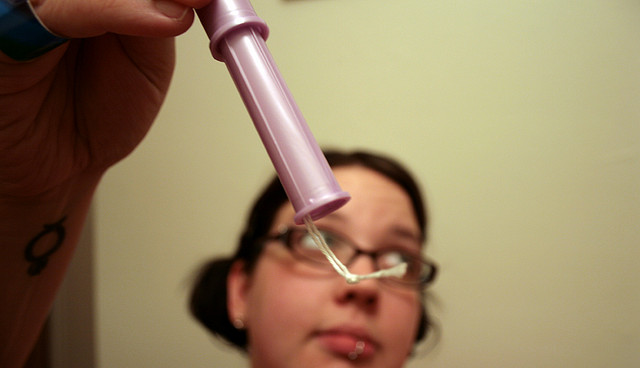As a woman, nothing seems worse than to be caught off-guard and be unprepared for your period, especially when in public. There are several ways to keep track of your menstrual cycle and period due dates. If you are a novice, then for your first two years at least, it is hard for you to know your exact menstrual cycle dates, as your body is still trying to figure itself out just as much as you are, but a guesstimate is always possible and you can be prepared. Once you are a adult, things get a little more systemic and you will soon realize your menstrual cycle gets into a groove of being either 28 days or a different yet fixed number of days that best suits your body.
Just as everyone’s bodies are different, so too are everyone’s periods. On the off chance that this will be your first period, you need to know that a menstrual period is when you will bleed every month as you have ovulated but have not been impregnated. Considering a 28 day menstrual cycle, eggs which are formed in the ovary follicles (follicular phase- Days 1-12) will move to your uterus to get fertilized by sperm (ovulation- Days 13-15). Your uterus has now prepared itself by lining the womb and when the egg is not fertilized, this lining will shed (luteal phase- Day 16-28). This lining made of blood, then flows out through the cervix opening and passes out of your body through your vagina. The blood flow can last anywhere from three to five days and in some occasions a little longer or shorter.
Your menstrual cycle is counted from day one of your period to the first day of your next period. Calculating when your next period is, is not only being positively prudent but can help you plan around vacations, doctor appointments, parties and any other events or if you are looking to get pregnant, knowing your menstrual cycle is of prime importance. If you are looking to get pregnant and that’s why you need to count the date to your next menstrual cycle then as mentioned with the day split up, the most optimal time to try for a baby is to have sex five days before your ovulation begins. If you are not trying to get pregnant, then ensure you have protected sex during this ovulation time frame and probably even otherwise!
28 days is the duration of an average menstrual cycle. If you are a young teen then your menstrual cycle can range from 20 to 45 days and if an adult then from 20 to 35 days. In order to figure out when your next period is you can follow the below steps for an almost precise calculation:
1. First you need to remember what the first day of your last period was. If you haven’t noted it down, it is easy to try and remember it based on something that happened that day or an associated event. Try asking a friend, if you are like me, you would have complained about it!
2. Thinking through your past periods, figure out the length of your average menstrual cycle length. This duration is the days counted from the first day of your menstruation till the last day just before your next menstruation day.
3. Remember the math your teacher taught you in school. All you need to do is add 28 or 30 days, whatever your menstrual cycle length is, to the date from when you had your last period.
In today’s era of technology, there are several apps available online or on your phone to calculate and track your period, or if you are not tech savvy, then marking it out on a calendar or using your fingers and toes to count works just as well! All you have to do is to remember the dates of when you do start you period, when it ends is irrelevant to calculating the next day. But if you feel like you are having trouble, too long a period or too long a wait for it, other irregularities, it is best you see a doctor as they could be indicators of hormonal imbalance and will need some caretaking.





